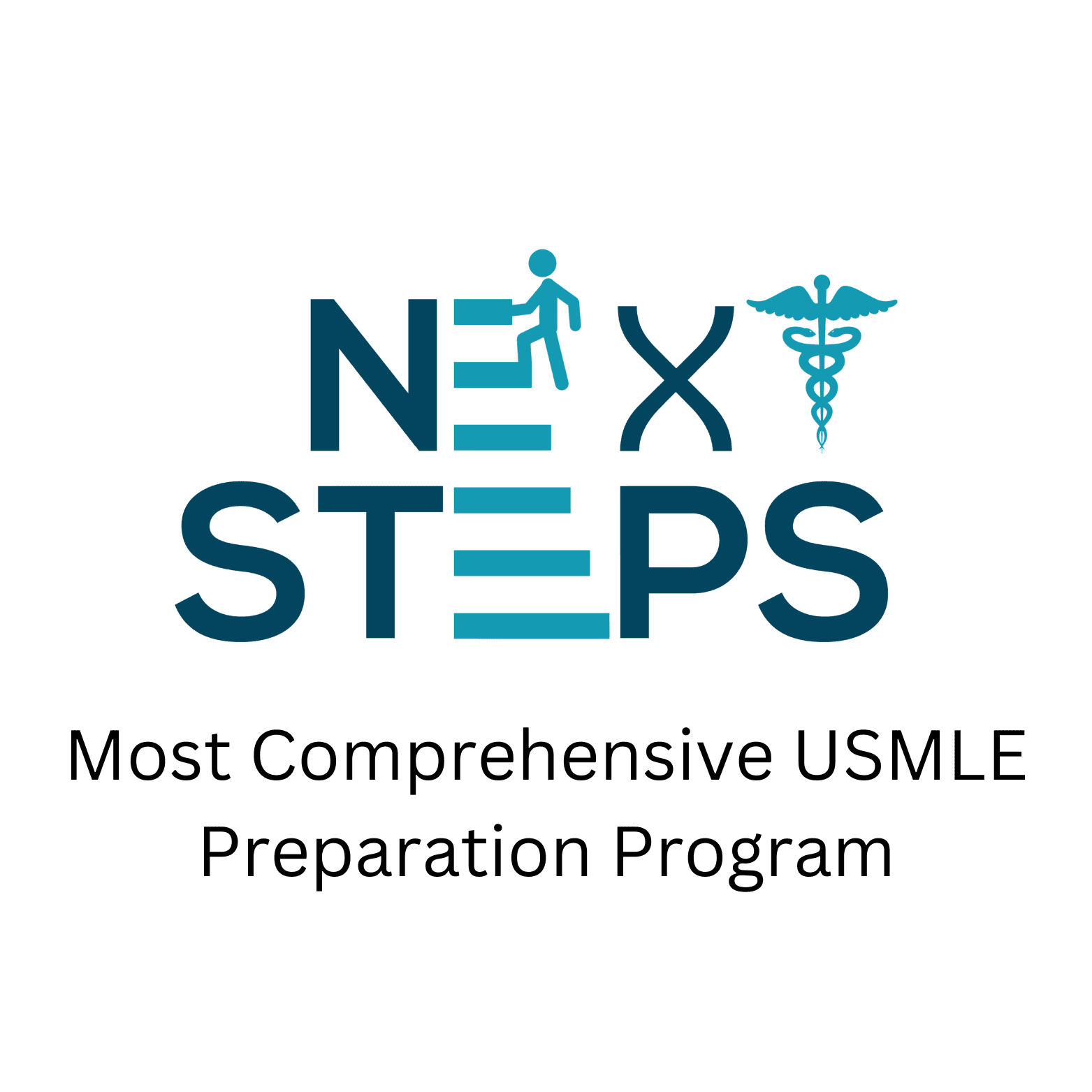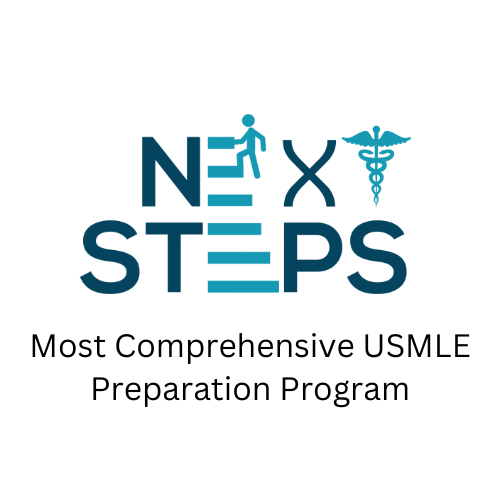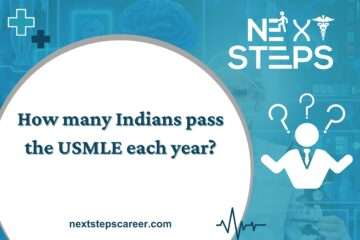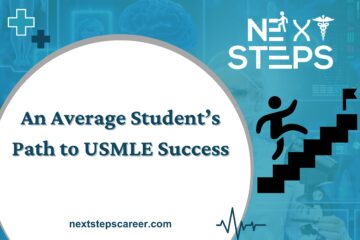The United States Medical Licensing Examination (USMLE) is a critical milestone for medical students and graduates aiming to practice medicine in the U.S. The journey through the various steps of the USMLE can be daunting, but avoiding usmle common pitfalls can make a huge difference in your success.
In this post, we’ll explore the most frequent mistakes applicants make during their USMLE preparation and how you can sidestep these obstacles to ensure a smoother and more successful journey.
1. Underestimating the Scope of Each Step
The USMLE is divided into multiple steps – Step 1, Step 2 CK, and Step 3—each designed to test different competencies.
One of the most usmle common pitfalls is underestimating the complexity and depth of the material covered in each step.
How to Avoid This:
-
- Understand the Blueprint: Each step tests a different aspect of your medical knowledge and skills. Step 1 focuses on the basic sciences, Step 2 CK tests clinical knowledge, and Step 3 assesses your ability to apply medical knowledge in clinical settings.
- Know the blueprint for each step and tailor your study plan accordingly.
-
- Create a Timeline: Start your preparation early. For each step, give yourself several months of dedicated study time, particularly for Step 1 and Step 2 CK, which are critical for residency applications.
2. Focusing Only on Content Knowledge
Many students fall into the trap of focusing only on learning content without honing their test-taking strategies. The USMLE exams don’t just test what you know—they test how you apply that knowledge under pressure.
How to Avoid This:
-
- Practice, Practice, Practice: Incorporate practice questions into your study routine early on.
- Use question banks like Qbank, Next Steps Mentoring App to familiarize yourself with USMLE-style questions.
-
- Simulate Exam Conditions: Take full-length practice tests under timed conditions to get used to the pace of the exam.
- This helps you build endurance and improve your time management skills.
-
- Analyze Your Mistakes: Simply doing practice questions isn’t enough.
- Spend time reviewing incorrect answers to understand your weak points and learn from your mistakes.
3. Ignoring Mental and Physical Health
Preparing for the usmle preparation is demanding, and many students sacrifice their mental and physical well-being for long hours of studying. This can lead to burnout and affect performance on test day.
How to Avoid This:
-
- Take Breaks: Incorporate regular breaks into your study schedule to avoid burnout. Use techniques like the Pomodoro method to balance focus with rest.
-
- Exercise and Sleep: Regular physical activity and adequate sleep are crucial for optimal brain function and retention of information.
- Aim for at least 7-8 hours of sleep per night, and make time for physical activity, even if it’s just a short walk.
-
- Practice Mindfulness: Incorporate stress-relieving activities such as meditation, yoga, or deep breathing exercises to manage anxiety during the preparation phase.
4. Inconsistent Study Habits
Another common pitfall is inconsistent study habits. Some students may start strong but lose momentum, while others may cram in the final weeks, leaving little time for proper review.
How to Avoid This:
-
- Set a Study Routine: Develop a consistent daily or weekly study routine that fits your schedule. Stick to it, whether you’re preparing for months or weeks.
-
- Use Study Timelines: Break down your study material into manageable chunks, and assign specific topics to specific days.
- Regularly review older material to reinforce retention.
-
- Track Your Progress: Keep track of your progress and adjust your schedule as needed.
- If you’re falling behind in certain areas, dedicate extra time to catch up before it’s too late.
5. Overloading with Study Resources
With an abundance of USMLE resources available, it’s tempting to use multiple books, question banks, and online courses. However, juggling too many resources can lead to confusion and overwhelm.
How to Avoid This:
-
- Limit Your Resources: Stick to a few high-quality, well-recommended resources for each step.
- For example, First Aid for USMLE Step 1, UWorld, and Pathoma are commonly suggested for Step 1.
-
- Master Your Primary Resources: Focus on mastering the resources you choose rather than switching between too many materials.
- Depth of understanding is more important than covering multiple sources superficially.
-
- Ask for Guidance: Seek advice from peers or mentors who have successfully completed the USMLE on which resources were most helpful for them.
6. Procrastinating on Clinical Skills Practice for Step 2 CS (Now OET)
For those who still associate clinical skills exams with Step 2 CS (now replaced by the Occupational English Test – OET for international medical graduates), a common pitfall is under-preparing for the clinical skills component.
How to Avoid This:
-
- Practice Early: Don’t wait until the last minute to start practicing clinical skills or communication skills for OET. Early practice allows you to refine your approach.
-
- Use Simulation: Practice patient encounters, history-taking, and physical exams with friends or colleagues.
- Simulation centers or mock exams can also provide valuable feedback.
-
- Understand the OET Structure: Since Step 2 CS is now replaced with the OET for international medical graduates.
- make sure you are familiar with the test’s language requirements, communication skills, and patient interaction tasks.
7. Neglecting Feedback and Mentorship
Many students go through their usmle preparation alone, missing out on valuable feedback and advice from mentors or peers who have gone through the process before.
How to Avoid This:
-
- Seek Mentorship: Reach out to seniors, medical faculty, or professional USMLE coaching services that can provide personalized guidance.
- Mentors can help you with everything from study planning to application advice.
-
- Join Study Groups: Engaging with peers in study groups allows you to learn from others and gain new perspectives on difficult concepts.
-
- Get Feedback on Practice Tests: If possible, get feedback from tutors or mentors on your practice tests.
- They can help identify gaps in your knowledge or areas where your test-taking strategy needs improvement.
8. Poor Time Management on Test Day
Even after months of preparation, poor time management during the actual exam can derail your performance.
Some students spend too much time on difficult questions, leaving themselves short on time for the remainder of the exam.
How to Avoid This:
-
- Practice Pacing: When using practice question banks, time yourself to ensure you can complete a block within the allocated time.
-
- Skip and Return: If a question is taking too long, move on and come back to it later. It’s better to answer easier questions first and avoid panic.
-
- Use Exam Breaks Wisely: The USMLE is a long exam, so use your breaks strategically.
- Take a few minutes to reset mentally and physically after each block to maintain focus throughout the day.
Final Thoughts
The usmle preparation journey is undoubtedly challenging, but being aware of common pitfalls can help you avoid unnecessary setbacks. With thoughtful planning, consistent study habits, and a focus on both content and strategy, you can navigate the usmle common pitfalls journey successfully and increase your chances of passing each step with flying colors.
By taking care of your mental and physical health, practicing under exam conditions, and seeking support from mentors, you’ll be better prepared to tackle this crucial step in your medical career.





